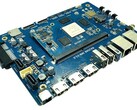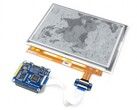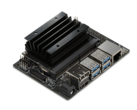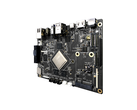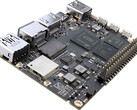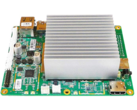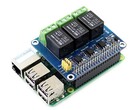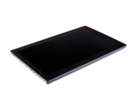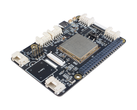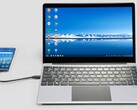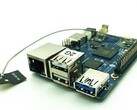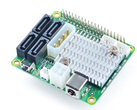One look at the Banana Pi BPI-M4 should confirm from where SinoVoIP got its inspiration for its latest single board computer (SBC). The developer board not only looks like the Raspberry Pi 3 but also works with most Raspberry Pi HATs and accessories. The Banana Pi BPI-M4 is slightly larger than the RPI 3 at 92 x 60 mm, but CNX Software reports that SinoVoIP includes connectors to ensure cross-compatibility.
The selling point of the BPI-M4 is its Realtek RTD1395, which integrates four ARM Cortex-A53 cores and an ARM Mali-470 MP4 GPU. SinoVoIP has also included 1 GB of DDR4 RAM and 8 GB of eMMC flash storage. The company claims that there is an option for 2 GB of RAM, but it is only currently selling the 1 GB version on AliExpress. Likewise, the BPI-M4 supports up to 6 GB of eMMC storage, but only 8 GB comes pre-loaded. The board also has a microSD card reader that can read up to 256 GB cards.
The BPI-M4 can hardware decode 4K video at 60 FPS that is encoded in H.265 or VP9. Likewise, it can decode 4K video at 30 FPS if it is encoded in other codecs like MPEG 1, MPEG 2, MPEG 4, H.264 and VP8. The board has four USB 2.0 Type-A ports along with one USB 2.0 Type-C port, the latter of which you can use for power. It also has onboard Bluetooth, Wi-Fi and up to 1000 Mbps Ethernet
SinoVoIP has included an M.2 key E slot too, which supports PCIe 2.0 and USB 2.0. Moreover, there is a 40-pin RPI compatible GPIO header for UART, I2C, SPI, PWM and 5 V/3.3 V power. The BPI-M4 requires 5V/2A, for reference.
The BPI-M4 is currently available to order for US$38 on AliExpress, but the retailer is offering a US$3 coupon until July 1 for new customers. Hence, the BPI-M4 effectively costs US$35. A word of warning though, SinoVoIP is yet to publish any firmware images and no source code on the BPI-M4 wiki. The AliExpress listing claims that the board supports Android and Linux, but it is unclear whether SinoVoIP preloads these.






